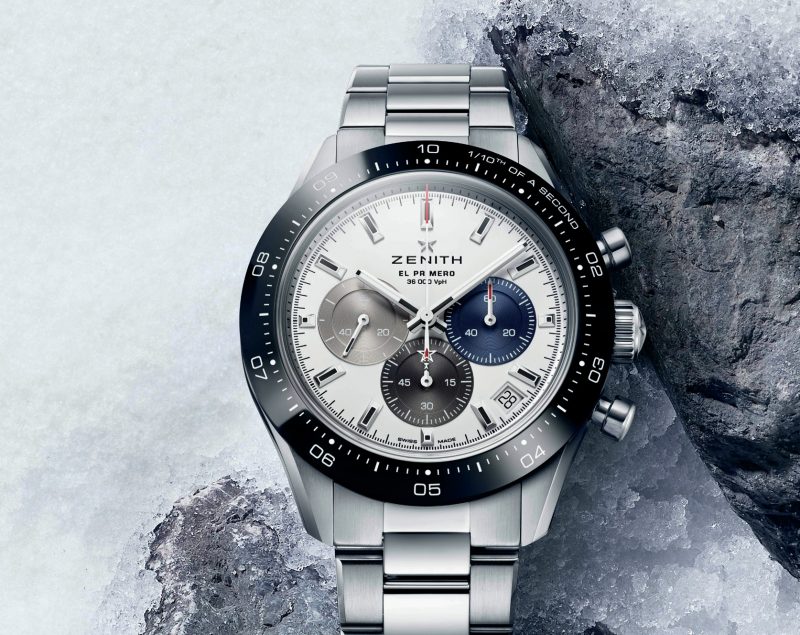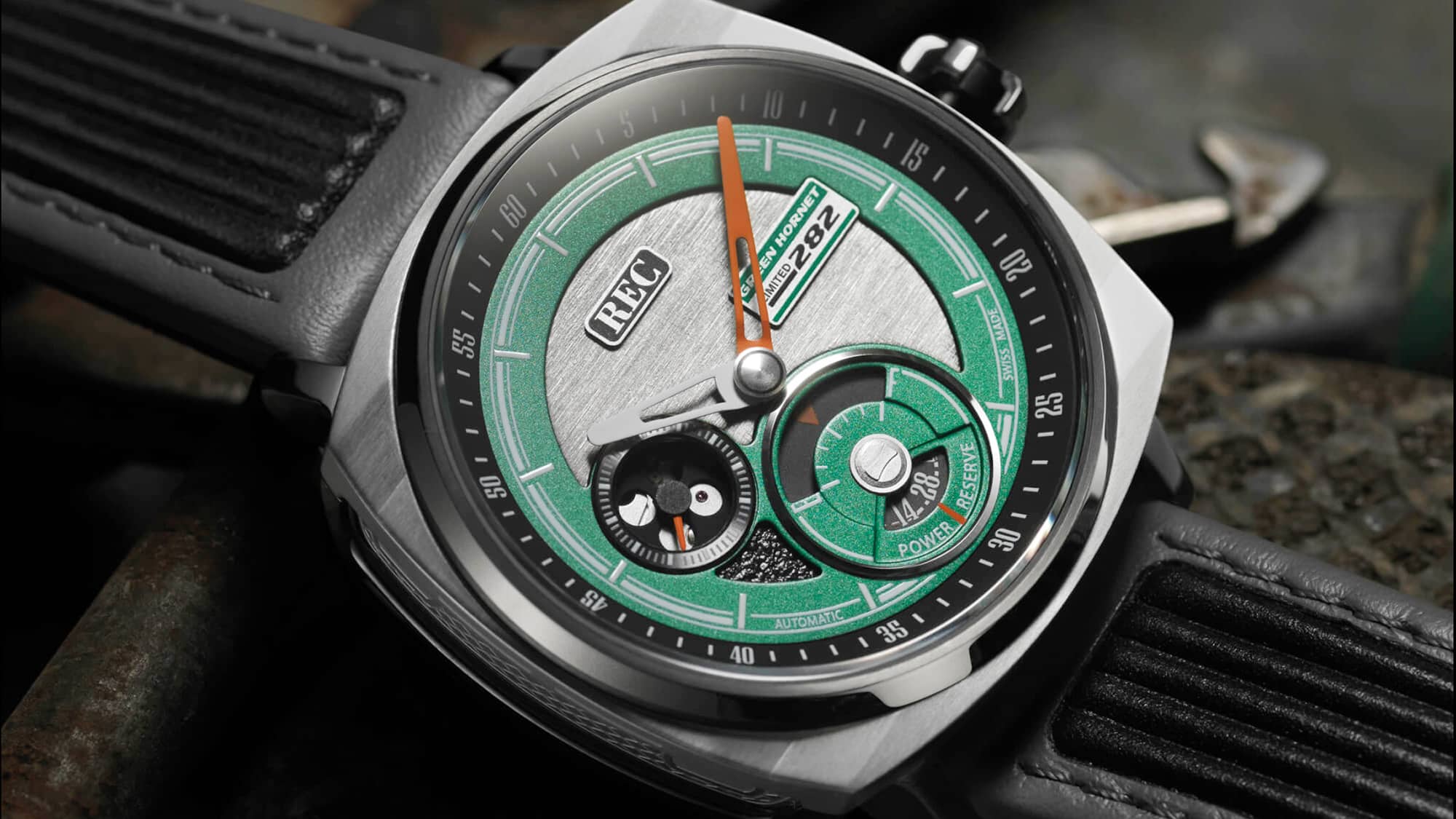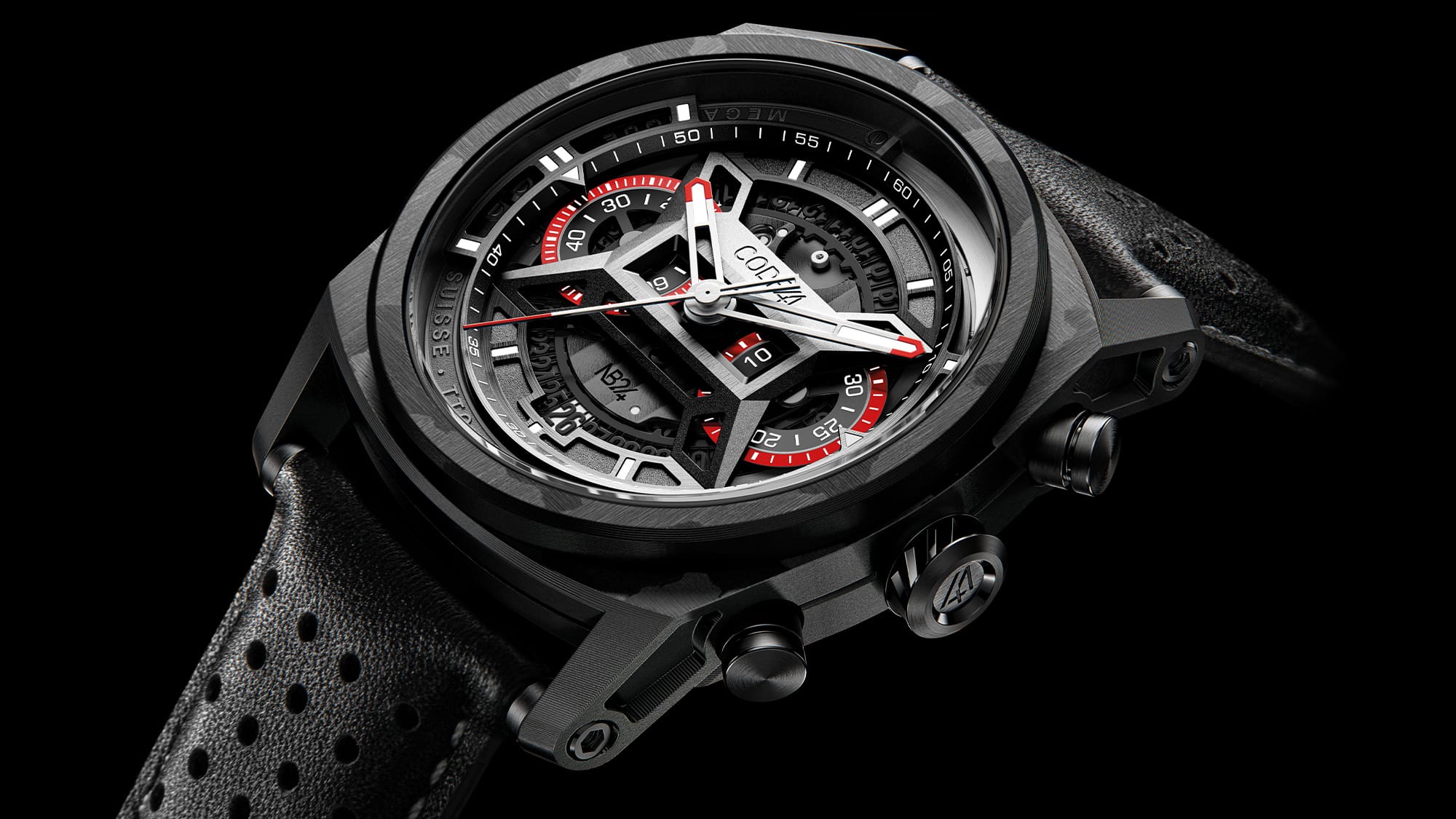Beat the queue
Why sign up for a Rolex that you can’t wear until the 2030s when Zenith’s new Chronomaster Sport is available now?

The steel-cased Chronomaster Sport references more than 50 years of Zenith styling
Anyone who keeps an eye on the modern watch market will know that it is currently a waste of time to walk into a Rolex retailer that deigns to allow you to purchase a steel Cosmograph Daytona chronograph. Demand is so high that dealers’ waiting lists now stretch into the next decade, so the only way to secure a ‘new’ Cosmograph is to look to the preowned market and pay a huge premium above retail for one that’s being ‘flipped’.
The first result thrown up by a Google search for such a watch offered a 2021 model delivered in three weeks for a price of £27,880. The Rolex RRP for its so-called ‘watch born to race’ is a more reasonable £10,500.
The market is so hot that such watches are finding buyers easily, despite prices being vastly inflated. But, just as people are beginning to seriously question the logic of being so blatantly shafted for what is a largely unremarkable if undeniably well-engineered watch, so a challenger to the Daytona has arrived from an unexpected rival – Zenith.
It won’t take long to find a dozen or more watches that are ‘inspired’ by the look of the Daytona, and you might even find one or two that are worth having. But, until the arrival of Zenith’s just-launched Chronomaster Sport, there hasn’t really been a contender that is of comparable quality, that’s fairly priced and is historically legitimate (i.e. not simply a copy).
So why is the new Zenith different? For a start, it’s fair to say that inspiration came from the brand’s back catalogue – the three-colour subdials are straight from the A386 launched in 1969 (the year Zenith perfected its El Primero, the first self-winding chronograph movement), while the pump pushers are reminiscent of the 1980s De Luca chronograph.
You don’t need to look too hard, either, to find elements of Zenith’s 1990s Rainbow (named after the 1934 America’s Cup-winning yacht) or the Stratos Flyback Striking 10th, as worn by skydiver Felix Baumgartner during his recordjump from the edge of space in 2012.
The 41mm Chronomaster Sport’s ceramic bezel is graduated in the 1/10th of a second increments that the El Primero movement is capable of recording. Add the fact that the movement has been upgraded to a new Calibre 3600 specification giving it 60 hours of power reserve and a blue column wheel that can be seen through the transparent case back, and you have a watch that owes nothing to anyone other than Zenith’s design team.
If you don’t fancy growing old waiting for a Daytona, the Chronomaster Sport is just as good, a fraction of the price – and your retailer won’t laugh at you for asking to buy one.
From £7900
zenith-watches.com

Several brands have created watches incorporating parts from the salvaged bits of interesting cars, planes and boats, but REC makes a better job of it than most. This time, metal recovered from a pair of historic Shelby Mustangs has been adapted for two models that pay tribute to the 1967 GT500 EXP prototypes ‘Little Red’ and ‘Green Hornet’. Both cars were restored by Craig Jackson, CEO at US auctioneer Barrett-Jackson, who supplied REC with material from each to make 318 and 282 limited edition P51 watches respectively.
£1242
recwatches.com

Code41 was set-up in 2016 by designer Claudio D’Amore with the intention of busting the ‘Swissmade’ myth by offering transparency of origin. But not only is the crowdfunded maker open about its sources, it also reveals the exact cost of manufacturing its models (in this instance, £1327). The design of the NB24 Creator chronograph, as with all Code41 watches, is a result of input from enthusiasts. It is dedicated to brand ambassador Nigel Bailly, the paraplegic racing driver who is due to take part in Le Mans – hence ‘NB24’.
£3500
code41watches.com
